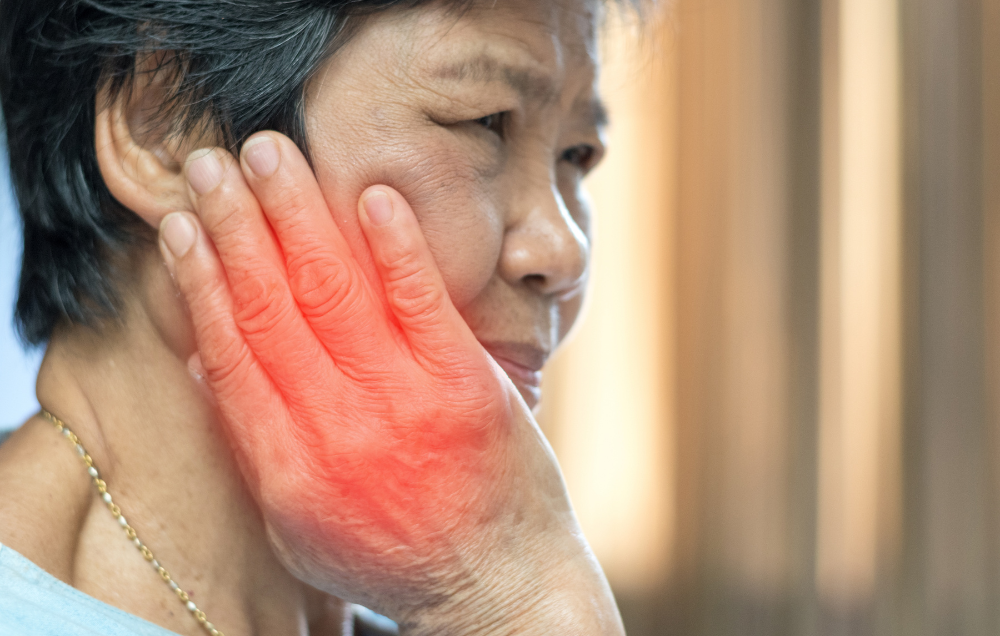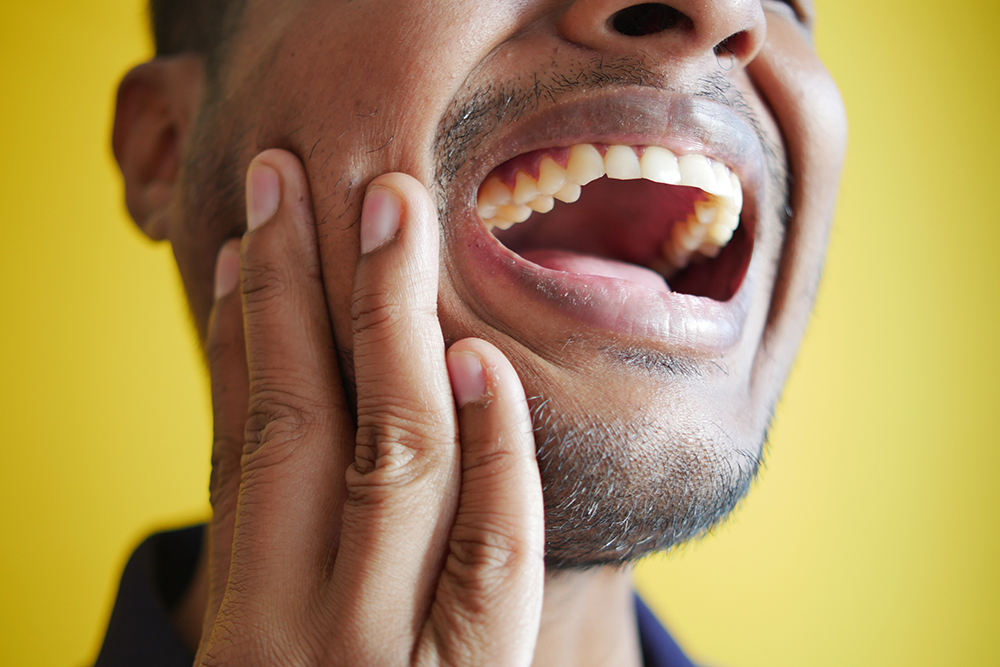Contents
The temporomandibular joint (TMJ) plays a vital role in your daily life. It allows you to talk, chew and yawn comfortably. However, when issues arise with this joint, it can cause you discomfort and pain. This can impact your overall quality of life. If you suffer from TMJ pain, you aren’t alone. TMJ disorders affect up to 12% of people. Finding a specialized health care provider is essential, and physical therapy can significantly help in managing your TMJ-related issues.
Understanding TMJ disorders
The TMJ is a complex joint. It connects your jawbone to your skull and is located in front of your ears on both sides of your face. TMJ disorders refer to a variety of conditions that can affect the jaw joint and muscles controlling its movement. These disorders can cause a variety of symptoms. These symptoms can include:
- Jaw pain.
- Clicking or popping sounds.
- Difficulty chewing, swallowing, yawning or speaking.
- Facial pain.
- Neck, scalp or shoulder pain.
- Pain, pressure, itchiness, or ringing in the ears.
- Headaches.
- Dizziness.
TMJ disorder can be caused by several factors including:
- Overuse.
- Stress.
- Teeth grinding or clenching.
- Misaligned teeth.
- Dental procedures
- Arthritis.
- Autoimmune disease.
- Myofascial pain.
- Jaw dislocation or other trauma.
Why it’s important to find a TMJ specialist near you
Given the intricate nature of the TMJ and the wide range of symptoms that can be associated with it, it’s essential to find a TMJ specialist near you if you’re experiencing issues. A health care provider who specializes in TMJ dysfunction can conduct a thorough evaluation. This evaluation can help diagnose specific TMJ-related issues you are dealing with and allow for a targeted and effective treatment plan to be created.
Physical therapy techniques that can help TMJ disorders
Physical therapy is a noninvasive and highly effective approach for managing TMJ disorders. TMJ-specialized physical therapists can employ a variety of techniques that are intended to help alleviate pain, improve jaw mobility and enhance the overall function of the jaw. Physical therapy techniques commonly used to help address TMJ disorders include:
- Manual therapy — Your physical therapist may use hands-on techniques to manipulate and mobilize the jaw. Soft tissue manipulation and joint mobilization are intended to relieve muscle tension and promote proper jaw alignment. Manual therapy can help enhance your joint mobility, reduce your pain and improve your overall jaw function.
- Therapeutic exercises — Your physical therapist may create a customized treatment plan of therapeutic exercises to help strengthen the muscles around your jaw and neck. Strengthening these muscles can help promote stability and flexibility, reduce muscle spasms, and help improve your overall range of motion.
- Stretching exercises — Stretching exercises can help target jaw, neck and shoulder muscles with the intention to alleviate tension. Regular stretching can help enhance muscle flexibility, reduce stiffness and alleviate discomfort associated with TMJ disorders.
- Posture training — Poor posture can contribute to TMJ-related issues. Your physical therapist can provide you with guidance on maintaining proper neck and upper back posture. Correcting posture can help reduce the strain on the TMJ and alleviate associated pain.
- Electrical stimulation — Electrical stimulation is a physical therapy technique that uses electrical currents that can be beneficial for TMJ disorders. It can help with pain management, promote muscle relaxation, reduce possible inflammation and improve range of motion. It can be combined with other physical therapy techniques, including manual therapy, to enhance the effects of treatments.
- Myofascial release — Myofascial release, also known as trigger point therapy, is a physical therapy technique that involves the application of pressure to specific points in the fascia and muscles to help alleviate pain and discomfort. It can help release trigger points that may be contributing to TMJ symptoms.
Other beneficial treatments for TMJ disorders
In addition to physical therapy, a number of other TMJ-specialized treatments can be beneficial for helping TMJ disorder symptoms such as:
- Relaxation techniques — Stress and tension can be common triggers for TMJ disorders. Learning and using relaxation techniques like deep breathing and mindfulness can help you learn to manage your stress effectively.
- Dietary and lifestyle changes — Being mindful of your diet and lifestyle can help you manage your jaw strain. A soft diet and avoiding excessive gum chewing or nail biting can all help lessen symptoms that can be exacerbated by hard foods or those habits.
- Medications — Your dentist or physician may prescribe medications to help you manage your TMJ pain. Over-the-counter NSAIDs or prescribed muscle relaxers can help with inflammation and muscle spasms.
Choose Lattimore PT as your TMJ specialist near you
Lattimore PT offers expert and personalized care tailored to your specific needs. Our skilled and experienced physical therapists understand the complexities of TMJ disorders and are dedicated to providing you with specialized physical therapy treatments that are intended to help alleviate your pain and discomfort. We strive to help relieve your symptoms and address the root causes of your TMJ issues. We genuinely care about your health and quality of life and will provide you with compassionate and effective care for your TMJ pain.
Contact our team today for more information or to schedule an initial appointment.



